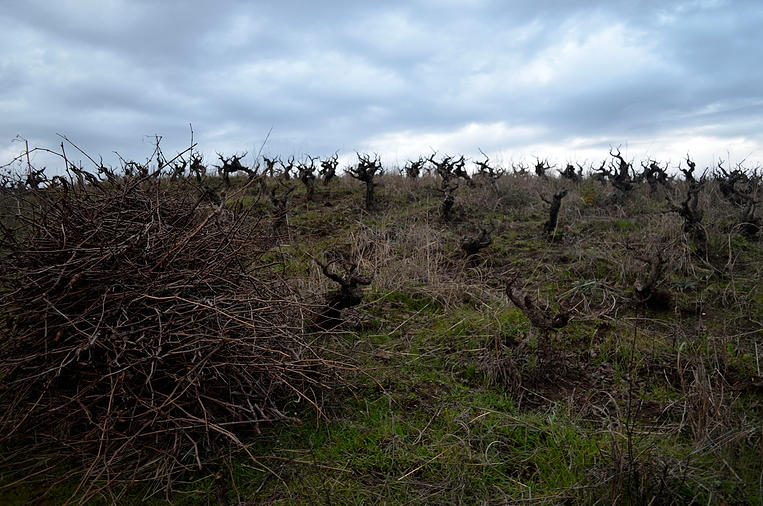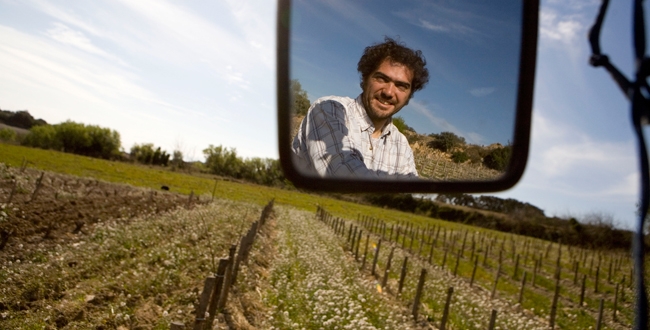A little bit of Jekyll, a little bit of Hyde – Rory Gallagher
I can’t second guess the intention of an amorphous group of critics and commentators any more than they can claim to pronounce authoritatively on all naturally-made wines, natural growers and natural wine enthusiasts. A succession of articles, blogs and pronouncements appeared in rapid succession; one merchant even devoted the entire introduction to their wine catalogue to condemning the natural wine phenomenon. The tenor ranged from the valid questioning the authentic quality of such wines to personally abusive mud-slinging and everything in between. The predilection for honking disapproval is most apparent in the hyper-speed world of social media–there’s an outrage whip-round every five minutes. Twitter and Facebook are seemingly full of people actively seeking out statements to be offended by, parsing every word as it scrolls upscreen, panning for critical nuggets. As Charlie Brooker wrote in The Guardian the other day, “Whether this is a narcissistic compulsion to demonstrate how much more thoughtful than the ignorant clod they are derogating or a cathartic howl of vague personal unhappiness disguised as a campaign of improvement….” no one knows.

What is apparent is that people most involved in the endless and tedious vilification are amongst the biggest beasts in the wine jungle. The poison has trickled into magazines, blogs and conferences and has polluted the discourse. If you are interested in rational engagement, this is profanation; one can see why people at the receiving end of the invective are becoming radicalised. This is more than a question of what’s good and what’s not in wine, but to ‘do with the sectional interests of the few against the freedom of the many.
It seems to me that if you don’t like naturally-made wines you need to make a coherent argument for the wines you like, but if you can’t make your point without endless negative reference to natural wine, then your argument is undermined.
Instead of welcoming the challenge as a positive and engaging debate, it is apparently easier to do a Violet Elisabeth-Bott and thcream and thcream. The logic being that the louder you thcrceam the more effectively you make your point. It is odd that the wine establishment seeks to claim the moral high ground through a perceived inferiority complex. The main plank of their defensiveness is that they envision a world where natural wine evangelists are perpetually preaching an anti-conventional wine message. This world is entirely of their own invention.
The net result is a cacophony of irrelevance, misattribution and slander. I am gobsmacked by the arrogance of Pooh-Bahs who patronise drinkers who enjoy drinking these wines. Methinks, they doth protest too much. Or is that their views are becoming increasingly marginalised in a world where wine drinkers are empowered make up their minds without the guidance of the critical establishment? Such histrionics may be construed as raging against the dying of the light. As for natural wine, whether you believe it to be a movement or a collection of highly disparate individuals, it has certainly energised the wine world, provoked strong debate and tweaked the noses of complacent traditionalists. That has to be a good thing!
I think if we draw the argument out and make it more than to sulphur or not to sulphur (that is not really the question) we can see that it has transformed into the grower versus the interprofessional organisation, the rights of the individual under the deadening hand of bureaucracy, the freedom to be creative and expressive in a world of rules and more rules, and always what constitutes taste.
I find the natural wine scene intellectually liberating and the growers and winemakers involved are usually very intelligent, inquisitive and passionate in the best sense. They come from all walks of life – the peasant class, the enlightened bourgeoisie, the keen amateur, the professional who has had a Damascene conversion. They may have had their family roots in the land for several centuries or departed from the city in search of a better life. They may be driven by ethical imperative or love the lifestyle. As John Wurdeman (Pheasant’s Tears) says: “It is a way of life, you do it because you cannot do it any other way. Natural wine is celebrating life, the wine is on fire with life.”
Olivier Pithon has a similar credo:

“It may sound silly, but it’s everything you didn’t learn at school that counts. We never learn that it’s essential to make wines which you love. They never speak to you about poetry, love and pleasure. It seems natural to me to have a cow, a mare and a dog for my personal equilibrium and just as naturally comes the profound desire and necessity to fly with my own wings or to look after my own vines. Ever since then, I’ve had only one desire: to give everything to my vines so that then they give it back in their grapes and in my wine. You must be proud and put your guts, your sweat, your love, your desires, your joy and your dreams into your wine. Growing biologically was for me self evident, a mark of respect, a qualitative requirement and a choice of life style. It’s economically irrational for a young enterprise like mine but I don’t know any other way to be than wholly generous and natural.”
What is it about wine? Do we have cheese or olive oil fanatics berating each other in this fashion? Do the honey fraternity start chucking hives at each other when they have a bee in their bonnet? One critic wrote in his predictions for 2013 that natural wine would cease to be an issue that anyone discussed because people would finally see the wines for what they were. Vinegar. Prescient words? Or wishful thinking? The beauty of all this is that the issues are not only being kept alive by the histrionic critics, but the very embers of an embryonic movement (pun intended) have been fanned by continual overwrought mentions from selfsame critics, thus politicising the movement further and making it into the roasting hot potato of wine conversation! And that, my friends, is the definition of irony. Without this public excoriation from the wine cognoscenti we few would now be quietly and contentedly in our cups supping the good stuff without realising that we were drinking evil yeast poison – and everyone else would be none the wiser. Governments/institutions are not meant to throw bricks at people. It’s just bad manners!
What does all this achieve ultimately? Is this campaign of political and critical abuse going to inhibit the winemakers from making wines in the way they want to or prevent people drinking those wines? Such a concept of control is anachronistic, illustrating the failure of a system that cannot cope with alternative philosophies. What it can’t control it tries to legislate against (the victimisation of Stefano Bellotti and prosecution of Enoteca Bulzoni in Rome). I would like to see people taking back ownership of their lives, not accepting the tyranny of bureaucratic interference. Perpetual change will keep the world of wine turning, real change, that is, not the continuous repackaging of the same old hype.
And liberty plucks justice by the nose;
The baby beats the nurse, and quite athwart
Goes all decorum
More o’ that, please.
There is an appetite for change identified by Jonathan Nossiter:

“What these vignaioli have accomplished in the space of a decade is truly remarkable. While other artistic and artisanal activities -auteur cinema, literature, activist journalism, architecture inter alia, are in a precipitous decline in terms of both influence and invention, in the world of wine this disparate group of rebels has created a legitimate renaissance. They’ve awakened a growing understanding of wine as a vector of historical memory, as a progressive expression of cultural identity, as an agent of good health and joy at the table and as a beacon in the fight to reinstil (biological) life into the land. And, most improbably, they’re carving out a rapidly expanding niche in the sacred marketplace, both in Italy and abroad, with importers from Brazil to Japan now seeking out exclusively natural wines.”
And he goes on to say this is not a monolithic ideological engagement but a constantly evolving, often internally dissenting reaction to a world in danger. “To dare: that is the whole secret of revolutions,” wrote Antoine Saint-Just.
Natural wine rose without trace. Now its green shoots have flowered, it apparently presents a clear and present danger to…whom or what? The general population? The mythical consumer on the Clapham Omnibus? Or the increasingly morally bankrupt establishment?
Dare to be different. Think different, drink different, make up your own mind what moves you and gives you pleasure. Buvons à la revolution!

